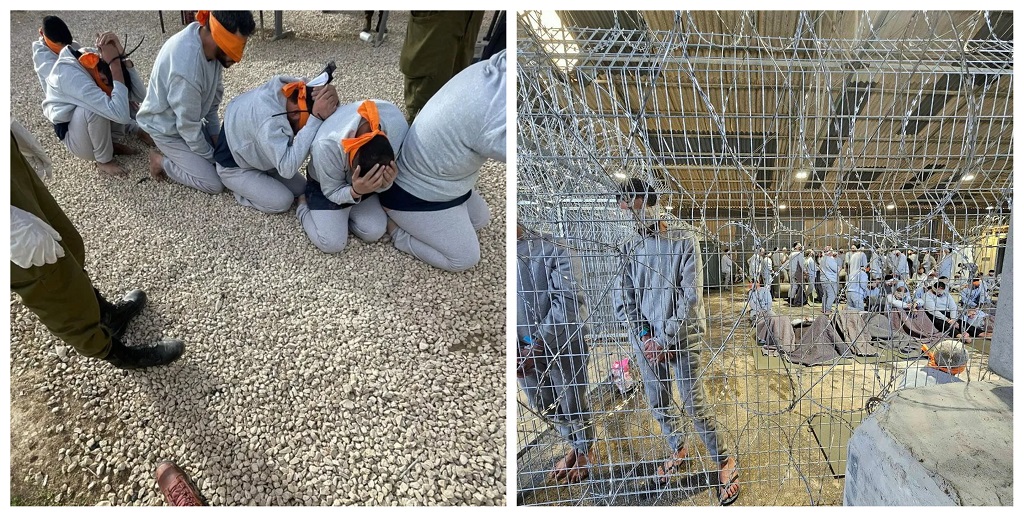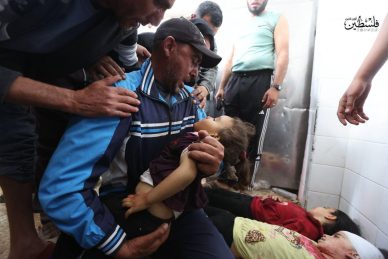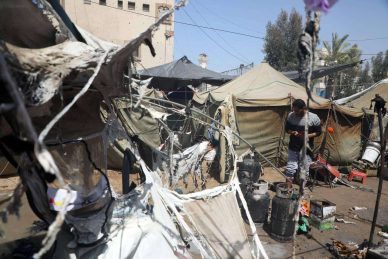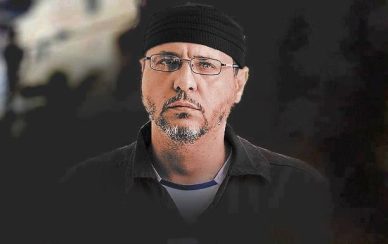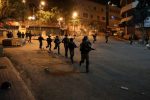RAMALLAH, (PIC)
Following the martyrdom of two new Palestinian prisoners in Israeli prisons and new testimonies from released prisoners, a tragic picture emerges of the reality of Israeli prisons and detention camps, which have turned into slaughterhouses of torture and death.
The Palestinian Prisoners Society and the Commission of Detainees and Ex-Detainees Affairs announced the martyrdom of the prisoners Samih Suleiman Muhammad Aliwi (61 years old) from Nablus, and Anwar Shaban Muhammad Asleem (44 years old) from Gaza.
Prisoner Aliwi was martyred on November 6, 2024, six days after being transferred from the Ramla prison clinic to Asaf Harofeh Hospital. He was detained prior to Ramla prison at Negev prison, and the prison administration did not announce his martyrdom, despite being obligated to do so.
As for martyr Anwar Asleem, he passed away on November 14, 2024, during his transfer from Negev prison to Soroka Hospital, following a deterioration in his health condition.
According to the Commission and the Society, prisoner Aliwi had been held administratively since October 21, 2023. During a visit conducted by a lawyer from the Commission on August 21, 2024, in Negev prison, Aliwi mentioned that he was suffering from several health issues prior to his arrest due to a benign tumor in his intestines years ago. Meanwhile, prisoner Anwar Asleem from Gaza has been detained since December 18, 2023, and according to his family, he did not suffer from any health problems before his arrest.
What did prisoner Aliwi say before his martyrdom?
Aliwi told the lawyer during the August visit the that he was suffering from severe health conditions prior to his arrest. He had undergone several surgeries, during which part of his intestines was removed due to a benign tumor. He was supposed to undergo another surgery in December 2023, but this did not happen because of his detention, which worsened his health situation.
He also confirmed to the lawyer that he, like many prisoners, faced acts of abuse and repeated assaults, especially during his transfer to the clinic. Despite his illness and difficult health condition, he was taken to the clinic while shackled and mistreated. He mentioned that he had lost over 40 kg by the time of the visit and was no longer able to eat the small portions of food provided to them. Additionally, he had not received any medical treatment since his arrest, noting that despite the intervention of human rights organizations to pressure the prison administration to provide him with treatment, nothing had changed.
Aliwi was a former detainee who spent nearly ten years in occupation prisons, with his arrest journey beginning in 1988. He is married and a father of nine children. Similarly, prisoner Asleem is married and a father of four children.
The Commission and Society confirmed that both Aliwi and Asleem were subjected to systematic crimes, like all martyr prisoners, through a policy of slow death and elimination practiced by the prison system against prisoners for decades. This is carried out through a series of crimes and consistent policies, most notably torture, medical neglect, and starvation, which have been central causes for the martyrdom of dozens of prisoners since the onset of this campaign of extermination.
Torture, abuse, and the policy of medical neglect that led to the deaths of prisoners Alawi and Salim have become an intensifying trend since October 7, 2023, as part of Israel’s policy of revenge and genocide against Palestinians.
New testimonies
Twenty prisoners, released by Israeli forces on Friday morning and taken to the European Gaza Hospital in Khan Yunis, provided harrowing new testimonies about the horrors of torture and abuse they experienced during their detention.
Freed prisoner Mahmoud Al-Najjar from the Jabalia refugee camp confirmed that all detainees, including the elderly and children, are subjected to brutal torture in Israeli prisons. He revealed that a prisoner had died and another was raped by prison guards, who frequently hurl profanities, insult detainees, and assault them without cause.
Israeli forces have detained over 5,000 Palestinians from Gaza over the past 13 months, with many still forcibly disappeared. Reports have confirmed the death of approximately 50 detainees during this time.
Alaa Al-Skafi, Director of Al-Dameer Association for Human Rights, said that there is no precise count of the number of Palestinians detained by Israeli forces from Gaza due to the policy of enforced disappearance.
Al-Skafi noted, “Israel has released approximately 1,200 prisoners in phases, leaving 3,200 detainees still in custody, including three women and dozens of children. Before the war on Gaza, there were 295 detainees from Gaza, according to Palestine Online.”
Types of torture
Al-Skafi revealed that Gaza detainees endure two types of torture in Israeli prisons:
1.Severe physical torture during interrogation to extract confessions using unprecedented methods.
2.Harsh and degrading treatment, including continuous beatings, insults, and psychological intimidation.
There is no comprehensive list of names or numbers of detainees since October 7, 2023, due to Israel’s enforced disappearance policy. Families often report their loved ones being held in Israeli prisons. However, when contacted through lawyers, prison authorities respond in one of four ways:
•Confirming the detainee’s presence in a prison.
•Denying the detainee’s presence in any facility.
•Declaring the detainee deceased in custody.
•Denying visitation rights or access to a lawyer.
The enforced disappearance policy enables Israel to subject detainees to severe torture away from external scrutiny, aiming to terrorize them and extract as much information as possible.
Retaliatory torture
Al-Skafi described the grim conditions of detainees, stating that torture is retaliatory and sustained, especially during the first 90–120 days of detention. He highlighted the atrocities in Sde Teiman Prison, where most Gaza detainees were held. Methods included:
•Blindfolding and tightly restraining hands with plastic cuffs, even during restroom use.
•Using aggressive guard units to subject detainees to extreme humiliation and spraying pepper gas.
Additionally, detainees were segregated into groups of five, intensively beaten with batons and rifle butts for 5–10 minutes every three days.
Systematic medical abuse
Detainees face systematic medical neglect, including starvation, sleep deprivation, sexual assaults, and restrictions on food and restroom access. Lawyers reported that only one legal visit to Sde Teiman Prison has occurred since October 7.
Sexual assaults
Sexual violence has been documented as one of the most heinous forms of torture inflicted on prisoners. During interrogations, detainees are often stripped naked, forced to wear diapers as a form of humiliation, and threatened with harm to their wives, mothers, or sisters.
Women detainees
Since October 7, 2023, Israeli forces have detained 51 women from Gaza, most of whom have been released, leaving three women in Damon Prison. They face dire conditions, including denial of medical care, poor food quality, lack of winter clothing, and degrading treatment.
Absence of charges
No legal charges have been issued against Gaza detainees so far, with their detention continuously extended. Israeli authorities are drafting new laws to justify the mass detention and prosecution of hundreds of Palestinians.
Al-Skafi emphasized that all human rights organizations are following up on the cases of Gaza detainees, who pose significant challenges to these organizations due to Israel’s continued policy of enforced disappearance.

